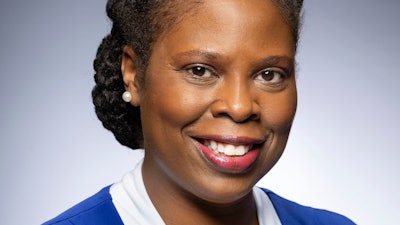And my equity journey continues.
Four years ago, I wrote a column about sending my son off to college and my fears for him as a young Black man finding his way as a student and citizen.
Today, I’m the proud mom of a college graduate. Though the world shut down during my son’s freshman year, and he spent his early college experience staring at a screen in his dorm room, he overcame every obstacle to reach his goal. But my longtime concerns for him as a parent have grown more severe in today’s anti-diversity, equity, and inclusion climate.
 Dr. Susan D. Johnson
Dr. Susan D. Johnson
I was fortunate to have the choice to take in what resonated with me and have civil conversations and discourse about the things that did not.
Would the same be true if I enrolled at the University of Florida today? I doubt if my Jewish cognitive psychology teacher could assign Even the Rat Was White as a historical reading without fierce backlash. I wonder if the Arabic Literature and Heritage class would be offered as a last-minute option, allowing me to maintain my status as a full-time student. And I wonder if my historically Black sorority would be eligible to apply for student government funding to attend leadership conferences, just like we did.
As a native Floridian and someone who helps lead a philanthropic organization focused on creating optimal conditions for all students to learn and succeed beyond high school, this action by the University of Florida hit me hard. It felt both sudden and final. It also hit me hard as an alumna and parent of a recent college graduate who — with a freshly minted degree and dreams of a career in sports media — must increasingly contend with policies, practices, and laws designed to limit his educational and job options as a Black man in America.
As Florida became one of the first states to enact laws restricting or eliminating DEI programs, other states followed suit. In Texas, a ban on DEI initiatives and offices at publicly funded universities and colleges took effect Jan. 1—–a move that includes closing a popular multicultural center and ending a scholarship program for undocumented students at the University of Texas at Austin. Though some schools in other states are fighting back or finding policy “gray areas,” more than 30 other anti-DEI bills have been introduced. My heart aches for the Gator Nation, the Lone Star State, and students across the U.S. whose horizons are being increasingly limited each day.
Yet, I remain steadfast in my belief that diversity of thought, equitable opportunities, and inclusive environments are critical keys to success for students, for workers, and for life. They certainly were in my case, and I’ll never stop pushing to ensure bold, broad opportunities for people to experience the power of learning. Not just for my son — but for all future generations eager to understand our world and create a better one.
Dr. Susan D. Johnson is director of grants administration at Lumina Foundation, a private foundation committed to making opportunities for learning beyond high school available to all. Since joining Lumina in 2008, she has served as a strategy officer, director of equity and inclusion, and director of impact and research. She is actively involved in the philanthropic sector, currently serving on the board of ABFE, and co-editor of “Standing on the Outside Looking In: Underrepresented Students’ Experiences in Advanced Degree Programs.”
















